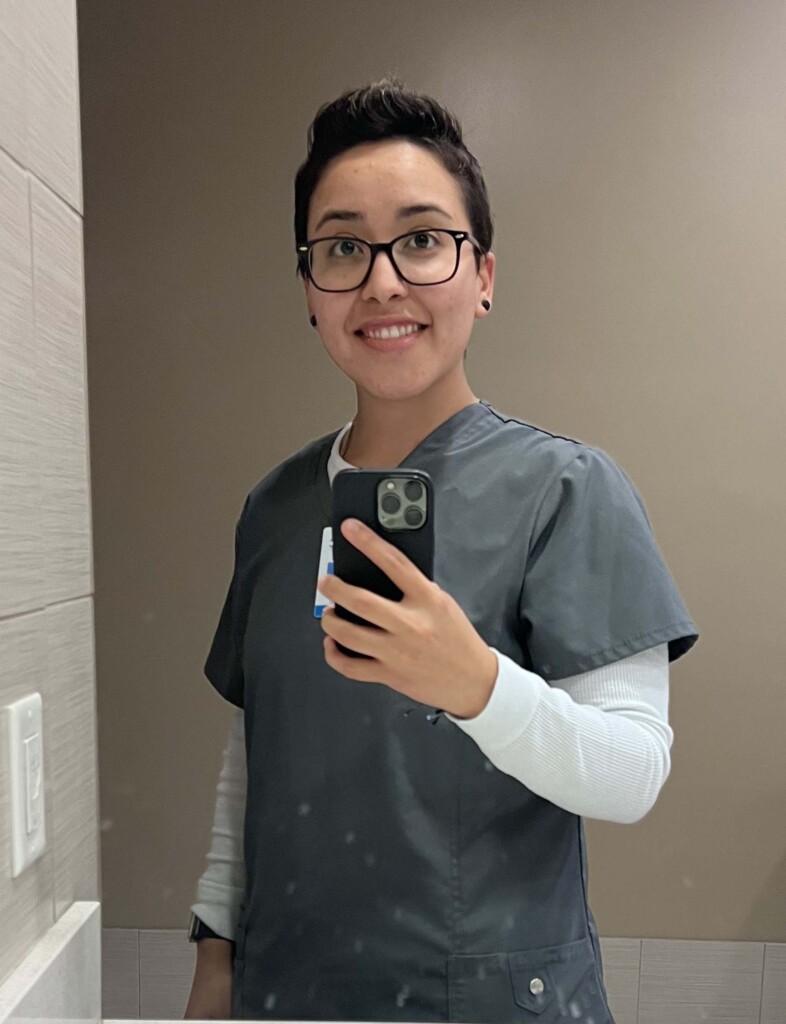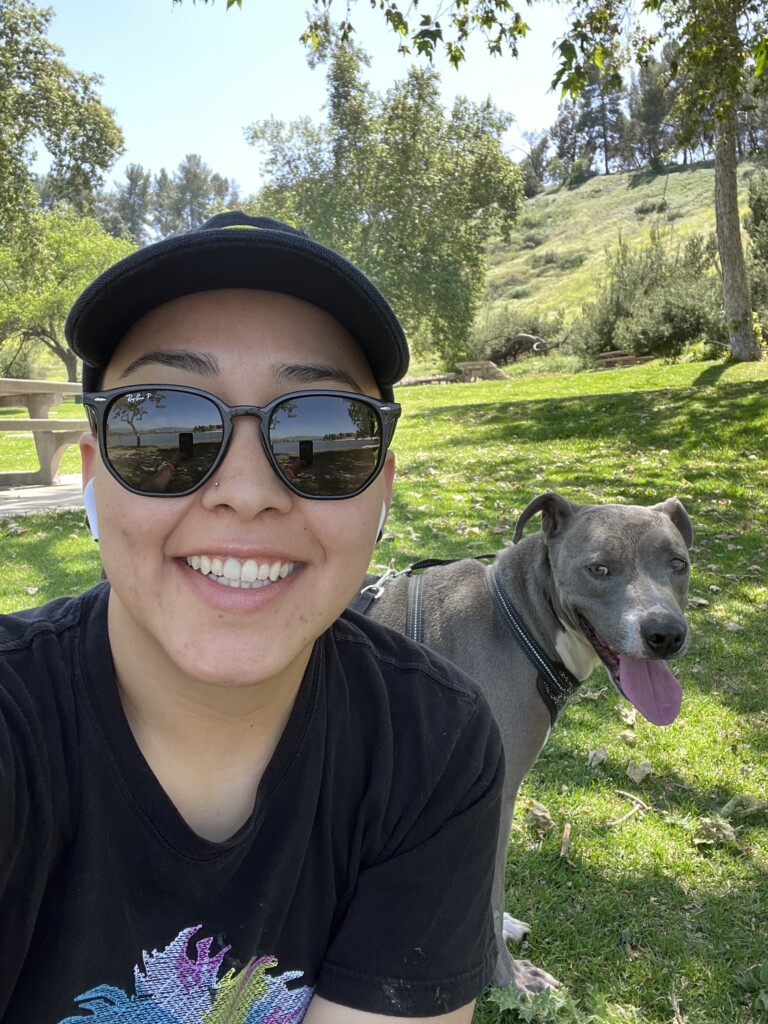Grad Q&A with Clinical Medical Assisting graduate Valerie Guerrero
 Valerie Guerrero always knew she wanted to be a Medical Assistant, but as she settled into her mid-twenties, she realized there was just no way she could afford the specialized training and education to make it happen. She contented herself with clerical positions in a medical environment, and she was reasonably content.
Valerie Guerrero always knew she wanted to be a Medical Assistant, but as she settled into her mid-twenties, she realized there was just no way she could afford the specialized training and education to make it happen. She contented herself with clerical positions in a medical environment, and she was reasonably content.
But sometimes, your dreams come and find you.
What brought your Medical Assisting career vision back to life?
I was tired of the paper part of the medical field and just wanted more of the hands-on experience. I knew that as a Medical Assistant I would have more patient contact – drawing blood, vaccines, taking vitals. But I would never be able to pay for school and didn’t qualify for financial aid to help out.
Then, my employer, East Valley Community Health Center, let it be known that they had grants through Community Clinic Association of Los Angeles County available for qualified employees to enroll in Clinical Medical Assisting programs (like SJVC’s). I was the first to apply for this process…and was accepted!
Was SJVC’s Clinical Medical Assisting program a good fit for you?
I was working full time so SJVC’s Ontario location and shorter externship (on-the-job experience) was a little more convenient than other school options. Everyone I’d spoken with there was super helpful.
How did you balance student life with full-time work?
I would work from 7:30 AM to 5:00 PM and class would go from 5:30 to 10:00 PM, Monday through Thursday. I just keep at it. I’d told a lot of people that I was going back to school. I couldn’t go back and tell them ‘I’ve quit’. Accountability.
Any ‘new student’ surprises?
Being an adult back in school, I wasn’t sure what to expect. The last time I was in class, I was a kid. Do you raise your hand to go to the restroom? How do we interact? Is the teacher going to be mean?
What I didn’t expect was my classmates to be so amazing. I honestly didn’t know we would have such a great support system: teachers, classmates – and my family. I couldn’t have done it without all of them.
Were your instructors attentive and instructive?
Both of my teachers made the program so enjoyable. They had actual medical experience out in the field and that gave us more confidence in what they were teaching. You can read something in a book, but don’t really have an idea of how you will be using it. But what they had experienced gave you something three-dimensional instead of a flat image.
They are patient-with-a-push. That’s exactly how it was. They push you in the right way and you build a relationship with them. I was shy and sometimes got nervous, but they make you feel like you’re not excluded. They helped us all to ask questions…and to learn.
What is a favorite classroom moment?
The very first module I started was drawing blood (on fellow students). I kept doubting myself, ‘What if I hurt someone?’ My teacher walked me step-by-step through the process: ‘This is what you look for. I’m right here if you have questions.’ She did not let me give up. Sure enough, I stuck the needle in, and I drew blood! It was a very big accomplishment.
Any advice you would give someone who doubts their ability to go back to school for a career?
First thing: do not give up. I remember my first week. There was so much to change, compromise and I was overwhelmed. I told myself, ‘Do one thing at a time.’ When I finished one assignment, I’d move on to another. ‘Don’t look too far ahead; just take one step at a time’.
What got you through some difficult moments as a student?
I thought of my youngest sister (of four girls), Karyna, who at twenty-three got a 2-year degree, then went on to a 4-year degree in Criminal Justice despite how much she had to work and compromise her schedule. Being at her graduation I told myself, ‘I have no excuse not to do this. I should be able to do this.’ It was my inspiration.
The first week I was struggling and just trying to get into the groove of how the program worked. After that I really enjoyed school and what I was learning and never had the feeling of wanting to quit again.
 Did you have family support while you were in your program?
Did you have family support while you were in your program?
My family was 100% supportive. I didn’t live at home, but they would drop off lunch when I was in class and send me text messages to come over for the weekend and let them cook for me while I do my homework. They made sure I was OK.
What kind of future are you envisioning?
I’m renting a room in a friend’s house, but when I get my Medical Assisting certification, I can get a better paying job and save for the home that I want. I also want to give my dog, Grey, the backyard he deserves.
It just all felt like – right time, right place. Then, Bam! It’s over. And I got a job.
What is your new position?
I was offered a job during my program externship (on-the-job experience) that allows me to do both an administrative and hands-on medical role. I train medical providers and clinical staff to use an electronic medical records (EMR) system instead of paper charts to document patient bloodwork, tests, order medications, referrals and record patient vitals, progress notes, examinations, and procedures.
I work closely with doctors and medical assistants when they have communication problems with the EMR and am their go-to for those processes and procedures.
My job also allows me to work as a Medical Assistant, so there is exposure to both worlds. Another step might be managing a clinic, which would require more experience on the clinical side.
I’ve already gotten a raise. Grey really needs that backyard.
You might also like
More stories about
Request Information
All fields using an asterik (*) are required.


